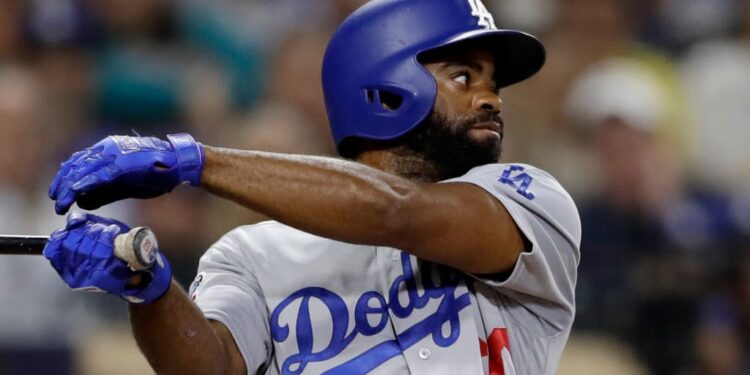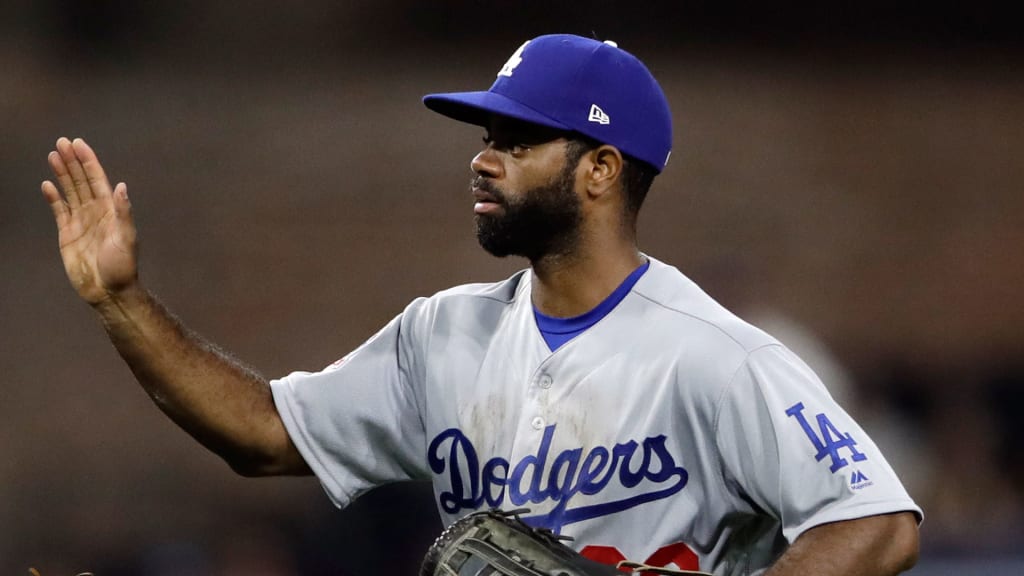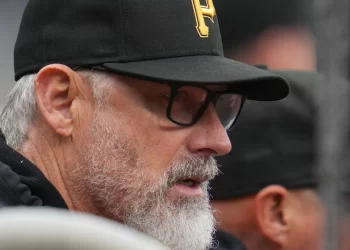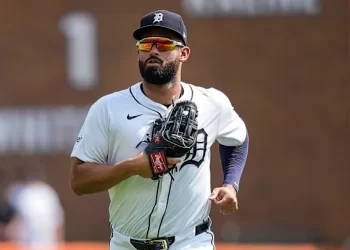By: Zachary Draves
We often bear witness to athletes’ physical wounds from giving it all they got in their respective sport. But we don’t see the internal anguish they endure that comes from the harsh realities of everyday life. Pain and suffering that can create feelings of isolation and despair which can worsen without proper support.
Thankfully, the Los Angeles Dodgers stepped up to the plate and gave 30 year old outfielder Andrew Toles some much needed relief. On Monday, it was reported by Sports Illustrated that the Dodgers were resigning him to a contract due to financial hardships stemming from recent mental health struggles.

(Courtesy: Rick Scuteri/USA Today Sports)
Struggles that have taken a toll on him for years.
During his minor league stint in 2015 with the Charlotte Stone Crabs, the Class A affiliate of the Tampa Bay Rays, Toles battled periods of anxiety to where he couldn’t sleep and show up to the field late on various occasions. Eventually, he found himself working at a Georgia Kroger grocery store in the frozen food section just to make ends meet.
After joining the Dodgers in 2018, he was checked in to a treatment facility where he was officially diagnosed with bipolar disorder and schizophrenia.
During that period he bounced around from Los Angeles to the Oklahoma City Dodgers of the Class AAA Pacific Coast League, where he hit .306 while playing in 71 games, a slight uptick in performance after batting close to .300 during 17 games in LA.

(Courtesy: Denis Porory/Getty Images)
Then in 2019, he didn’t report to spring training and the Dodgers placed him on a restricted list without giving any further details.
In June 2020, it was discovered that he was homeless and was found sleeping behind a FedEx building at the Key West International Airport in Florida. He was arrested for trespassing violations and after the charges were dropped, he bounced around from various mental health facilities and homeless shelters before his father took official guardianship over him.
While the new contract doesn’t pay Toles a salary, he will still have access to the team’s health insurance plan.
This extraordinary gesture of good will by the organization should be commended and certainly Toles is lucky to have that security blanket. But thanks to economic and health gaps as it pertains to severe mental illness, others whose circumstances mirror that of his, aren’t as fortunate.
(Courtesy: MLB.com)
The double burden of living with bipolar disorder and schizophrenia is damaging medically, emotionally, and economically.
According to the World Health Organization, people living with schizophrenia are two to three times more likely to have a lower life expectancy compared to the rest of the general population. Much of this is attributable to other health complications such as a high rate of infectious, metabolic, and cardiovascular diseases.
People living with schizophrenia also have a high risk of suicide, four times higher for young adults. Plus poverty is more associated with schizophrenia than any other mental illness and has been labeled as a powerful predictor for an eventual diagnosis.
In total, the overall cost of schizophrenia is $343.2 billion, when broken down is around $88,000 per person.
For people living with bipolar disorder, the struggles are very similar. There is a strong correlation between BD to drug addiction, eating disorders, and high direct and indirect healthcare costs.
When it comes to BD, the overall cost is $219.1 billion, which is roughly $88,443 per person.
When it comes to insurance coverage progress has been made since the passage of the Affordable Care Act in 2010.
A 2014 study by Jama Psychiatry found that the uninsured rate for people living with schizophrenia under 65 years old decreased by 50% due to the ACA. Furthermore, the current uninsured rate for that population stands at 4%.
While that is certainly good news, it should be noted that as of 2022, 5.5 million adults living with severe mental illness are still uninsured and up until now that included Toles.
(Courtesy: Getty Images)
A truly sad story about the harsh realities of existing at the intersection of economic, mental, and emotional vulnerabilities has found at least a glimmer of light. The prospects of Toles getting back on the field should not be the main focus, but it is to get him the stability that he needs.
Stability that should be afforded to the millions of others like him who are in dire need.
His life and their lives depend on it.


 NFL
NFL






